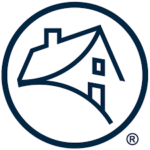Traditional Mortgage
equity unlimited
Traditional Mortgage
A traditional mortgage refers to a home loan that is not insured or guaranteed by a government entity such as the Federal Housing Administration (FHA), the Department of Veterans Affairs (VA), or the United States Department of Agriculture (USDA). These mortgages typically adhere to guidelines set by Fannie Mae or Freddie Mac, which are government-sponsored enterprises (GSEs) that buy and guarantee mortgages in the secondary market.
Traditional mortgages are offered by banks, credit unions, mortgage companies, and other financial institutions. Borrowers choose these mortgages for their stability, standardized guidelines, and often competitive interest rates (especially for those with strong credit profiles). However, they typically require more stringent qualifications compared to government-backed loans
Here are some key features of a traditional mortgage:
Down Payment: Traditional mortgages often require a higher down payment compared to government-backed loans. Typically, borrowers may need to put down at least 3% to 20% of the home’s purchase price, depending on the lender and the loan program.
Credit Requirements: Borrowers usually need a good credit score to qualify for a traditional mortgage. A higher credit score demonstrates financial responsibility and may help in securing better interest rates.
Private Mortgage Insurance (PMI): If the down payment is less than 20%, lenders often require private mortgage insurance to protect against the risk of default. Once the homeowner’s equity reaches 20% of the home’s value, they may be able to request the cancellation of PMI.
Fixed or Adjustable Rates: Traditional mortgages offer both fixed-rate and adjustable-rate options. Fixed-rate mortgages maintain the same interest rate for the entire loan term, providing stability in monthly payments. Adjustable-rate mortgages (ARMs) typically have a fixed rate for an initial period, after which the rate can change periodically based on market conditions.
Loan Limits: Fannie Mae and Freddie Mac set loan limits annually, defining the maximum loan amount that can be purchased or guaranteed by these entities. Loans that exceed these limits are considered jumbo loans and often have different requirements.
Term Length: Traditional mortgages commonly have term lengths of 15 or 30 years, although other options might be available depending on the lender.
Conventional
The Federal Housing Administration (FHA) – which is part of HUD – insures the loan, so your lender can offer you a better deal
QM-Mortgage
The Federal Housing Administration (FHA) – which is part of HUD – insures the loan, so your lender can offer you a better deal
Non-QM
The Federal Housing Administration (FHA) – which is part of HUD – insures the loan, so your lender can offer you a better deal
VA Mortgage
The Federal Housing Administration (FHA) – which is part of HUD – insures the loan, so your lender can offer you a better deal
USDA Loan
The Federal Housing Administration (FHA) – which is part of HUD – insures the loan, so your lender can offer you a better deal
USDA Loan
The Federal Housing Administration (FHA) – which is part of HUD – insures the loan, so your lender can offer you a better deal
Visit us in office
6709 11th Ave
Brooklyn, NY 11219
Get In touch
718-832-7000
cs@equityunlimited.net
Business Hours
Mon- Fri: 10AM- 7PM
Saturday: by Appointment only
